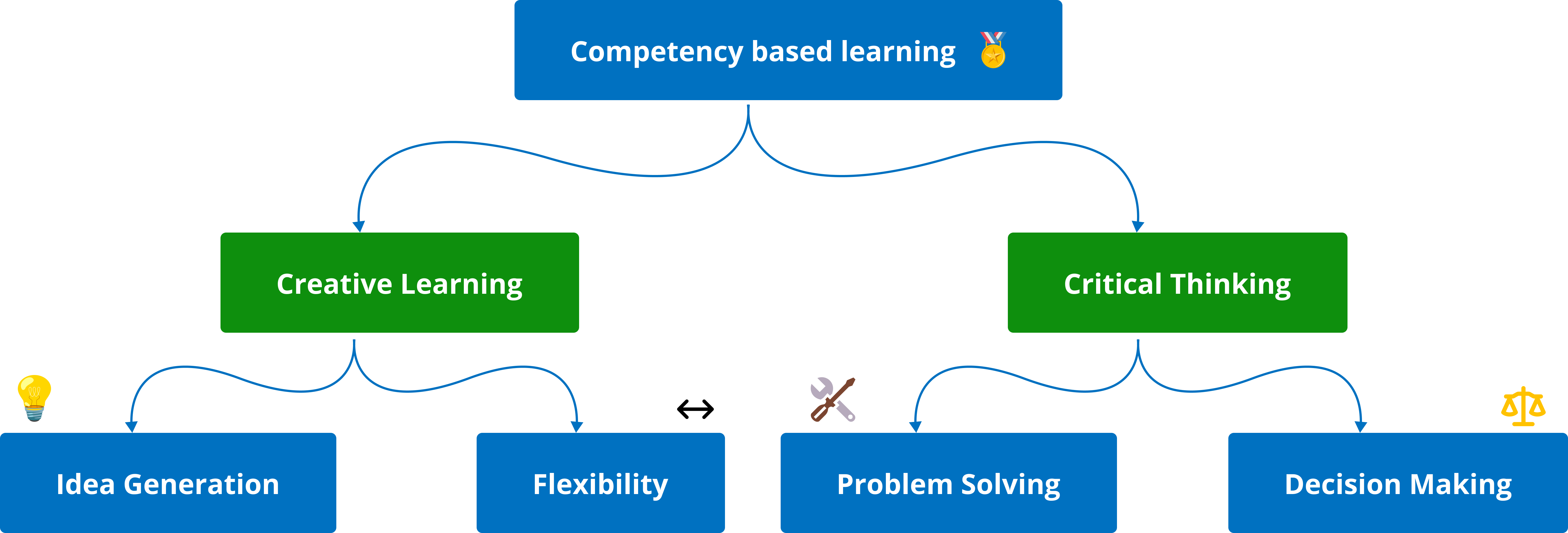The North South Foundation Creative Learning (NCL) is an education initiative of the North South Foundation, India, aimed at fostering critical thinking and creative learning among school children. Three categories of Competency Based Assessments, discussed below, are conducted for students in Grades 3 to 12, in English, Science and Mathematics. These assessments support student learning journey and improve their learning outcomes.

- SADHANA (Formative Assessments) The primary purpose of Sadhana assessment is to provide ongoing feedback during the learning process for students in grades 3 to 12. It helps teachers and students to identify strengths and weaknesses in real-time, allowing for immediate adjustments to instruction. Sadhana assessments focus on understanding students' current level of understanding and provide insights into how to improve their learning. Feedback is provided quickly, allowing students to make adjustments promptly. It is often more descriptive and focuses on improvement. Sadhana assessments are typically low-stakes, meaning they should not be used to grade students. The subjects covered are: English, Science, Mathematics for grades 3 to 10. However, for Grades 11 & 12, subjects covered are: English, Chemistry, Physics and electives like Mathematics, Biology or Bio-technology. The assessments are done once a Month, preferably at the end of the month. The syllabus covered in the assessment is limited to what was taught in the previous month.
- SODHANA (Summative Assessments) The primary purpose of Sodhana assessment is to evaluate and measure the overall learning outcome at the end of an instructional period for students in grades 3 to 12. Sodhana assessments focus on assigning grades or determining the level of achievement reached by students. Feedback may be provided, but it is often less detailed and more focused on the overall performance. Sodhana assessments contribute significantly to the final grade, providing a comprehensive measure of a student's achievement. The subjects covered are: English, Science, Mathematics for grades 3 to 10. However, for Grades 11 & 12, subjects covered are: English, Chemistry, Physics and electives like Mathematics, Biology or Bio-technology. The assessments are done 3 times in a year, Quarterly, Half Yearly and Annual. The syllabus covered in the assessment includes all materials covered until time of the assessment.
-
SAMAGRA (Benchmark Assessments) The primary purpose of Samagra assessment is to evaluate and measure the student performance against established standards or benchmarks, to determine strengths and weaknesses compared to similar cohorts for students in grades 3 to 5. Samagra assessments focus on evaluating entry-level academic literacy and mathematics skills, correlation between entry-level skills and school-level exit results, quantitative and aptitude analysis. Feedback is provided to the institutions about the admissions and placement of entry-level students; information on baseline, mid or endline performance. Samagra assessments are typically low-stakes, meaning they should not be used to grade students. The subjects covered are: English, Environmental Sciences & Mathematics. Assessments are done once in a year or at the beginning/ middle/end of the year. Overall, grade-specific syllabus is covered in the assessment.

